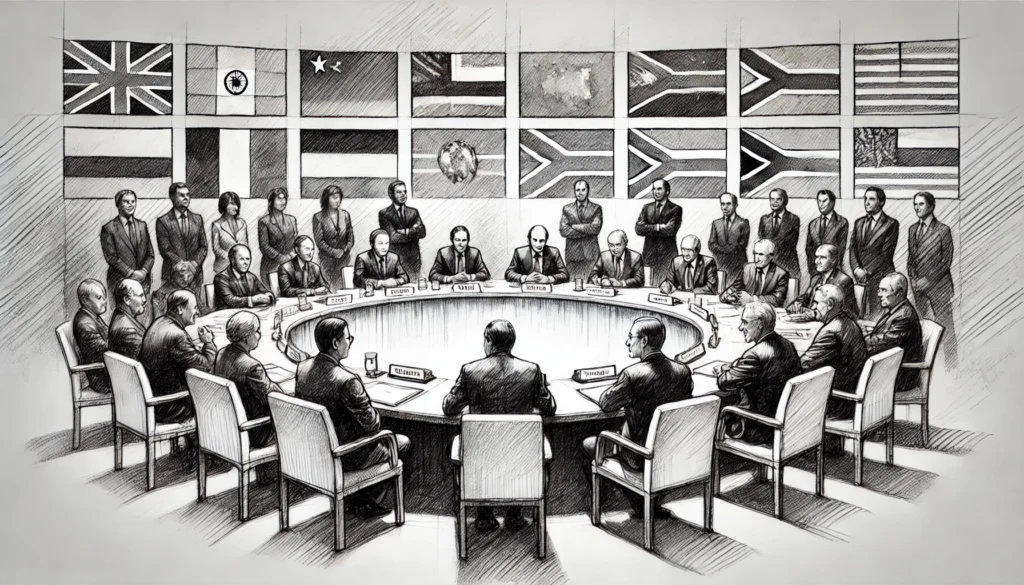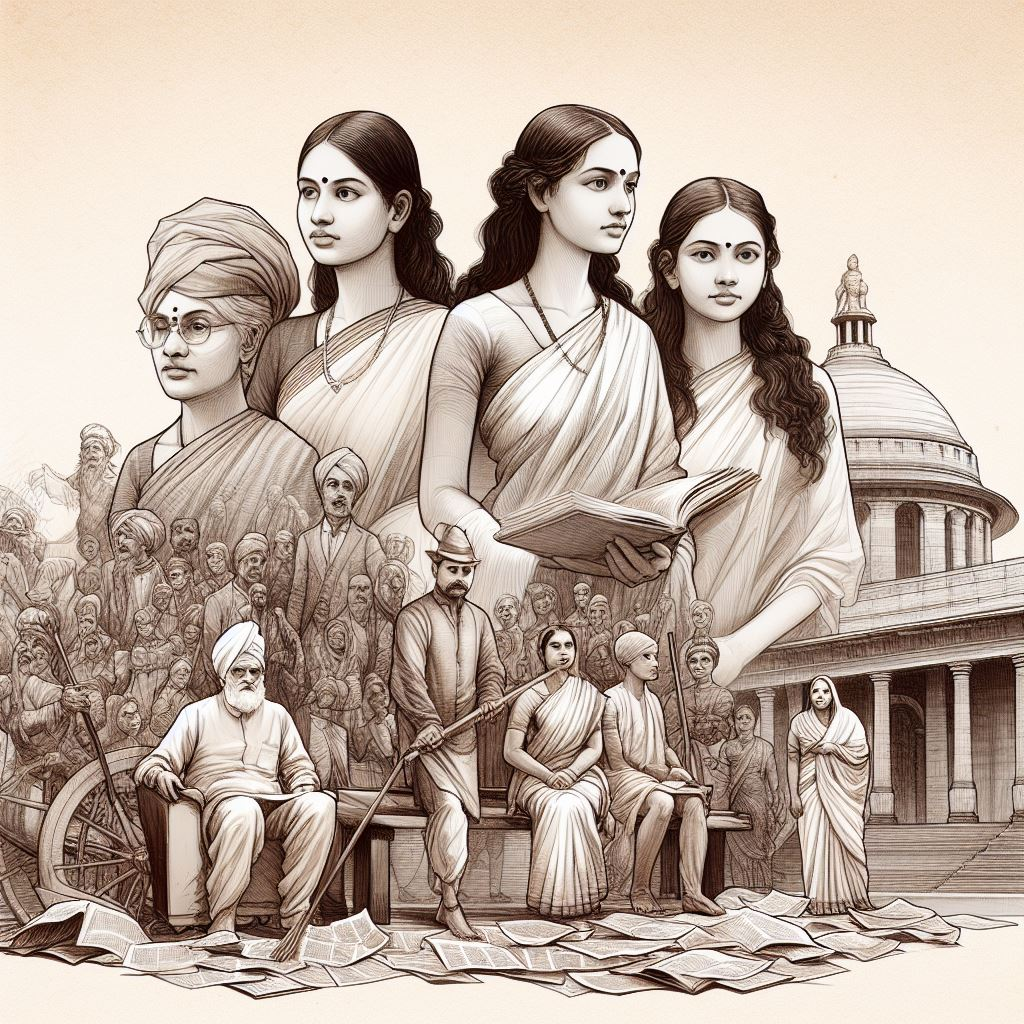Parth Raman
International relationship only works on equations rather than treaties. As famously said, there are no permanent enemies nor friends in foreign policy.
The States has directly engaged in a cold war against Russia and China. Previously, the term ‘Cold War’ was used from 1945 to 1991. Maybe the USA is on the decline as the global hegemony is with China, very significantly as approximately out of Joe Bindens’s last 100 media addresses or interactions on foreign relations 90 were about China directly. Maybe it will not be the same for the newly elected President, Trump. In this decade of geopolitics, India may be standing with a grand old friend Russia and a newly mediated friend China.

New Model of Unity
India’s foreign policy is shifting decisively towards a multipolar world order, exemplified by its strengthened partnerships with Russia and China within the BRICS framework. At the 2024 BRICS Summit in Kazan, member states are considering launching a dedicated BRICS currency, intended to challenge the dominance of the U.S. dollar in global trade. This ambitious financial strategy aims to reinforce economic independence among BRICS countries, signalling a move away from dollar dependence. On the diplomatic front, India and China have managed to come to a tentative agreement on their border disputes, symbolizing progress towards regional stability and cooperation. As Chinese President Xi Jinping noted, “India and China can support each other to move forward together.” Iran and Brazil’s endorsement of India’s rise as a global leader further demonstrates a growing trust in India’s potential. Brazilian President Luiz Inácio Lula da Silva recently emphasized that “India’s growth and development are assets to global peace and prosperity.” Through these partnerships, India is championing a cooperative approach, reinforcing its status as a unifier in the quest for an inclusive, multipolar world.
If Not G7, Face BRICS
India is not instigating a diplomatic confrontation but rather responding to provocations from the West. Canada’s Prime Minister Justin Trudeau, in his unverified claims about India’s alleged involvement in domestic incidents, has highlighted the West’s selective diplomacy. Similarly, the U.S. recently imposed sanctions on multiple Indian companies in October 2024, raising eyebrows in the international community. These actions reflect a double standard that contrasts sharply with BRICS’s more inclusive, flexible approach to membership and economic collaboration. As South African President Cyril Ramaphosa noted, “BRICS stands as a platform for emerging economies to thrive without Western dominance.” In contrast, the G7 restricts membership, often marginalizing countries from the Global South. This rigid framework, coupled with the West’s increasingly aggressive posturing, has made BRICS an appealing alternative. In an era where the G7’s exclusivity appears outdated, BRICS presents a sustainable and equitable path for East and South collaboration.
Canadian Approach to India
Canada’s escalating stance toward India has taken on an increasingly confrontational tone, with Prime Minister Trudeau making allegations against India without providing substantive evidence. Meanwhile, Canada continues to provide haven to known Khalistani extremists, openly supporting groups that have promoted anti-India violence. “Canada should be more transparent and not provide a platform for divisive and dangerous ideologies,” said an anonymous Indian government official. India should consider boycotting the upcoming G7 Summit in Alberta, Canada, in response to Canada’s unwillingness to address terrorism concerns that harm global security. India’s absence at the summit would signal its dissatisfaction with Canada’s tolerance of extremism. Diplomacy demands mutual respect and accountability, and Canada’s current stance not only jeopardizes bilateral relations but also risks undermining broader international norms against extremism.
Sociological Approach of the West Towards India
The West’s ongoing scrutiny of India reflects a resistance to India’s rise as a global power. Historically, Western dominance has resisted shifts towards an equal, multipolar world, viewing non-Western countries’ emergence as threats rather than opportunities. Prime Minister Modi’s remarkable domestic popularity—a reflection of his leadership of an assertive, self-sufficient India—challenges these traditional power structures. In the words of Russian President Vladimir Putin, “India’s rise is natural and overdue.” Western nations often react by holding India to different standards in international affairs. This approach reveals a sociological inertia, where the West’s reluctance to adjust to India’s prominence underlies much of its confrontational posturing, underscoring the West’s struggle to redefine its role in an increasingly multipolar world.
The views and opinions expressed by the author/s in this article are their personal opinions and do not represent the views of PureSociology. You can contact the author/s at [email protected] . The details of the author/s are:
Parth Raman is a Legal Consultant and Public Policy Researcher with a keen interest in Diplomacy. He is a Lawyer, pursuing a Master’s in Human Rights and Multi-Level Governance from the University of Padua, Italy.



Eye opening Article indeed.